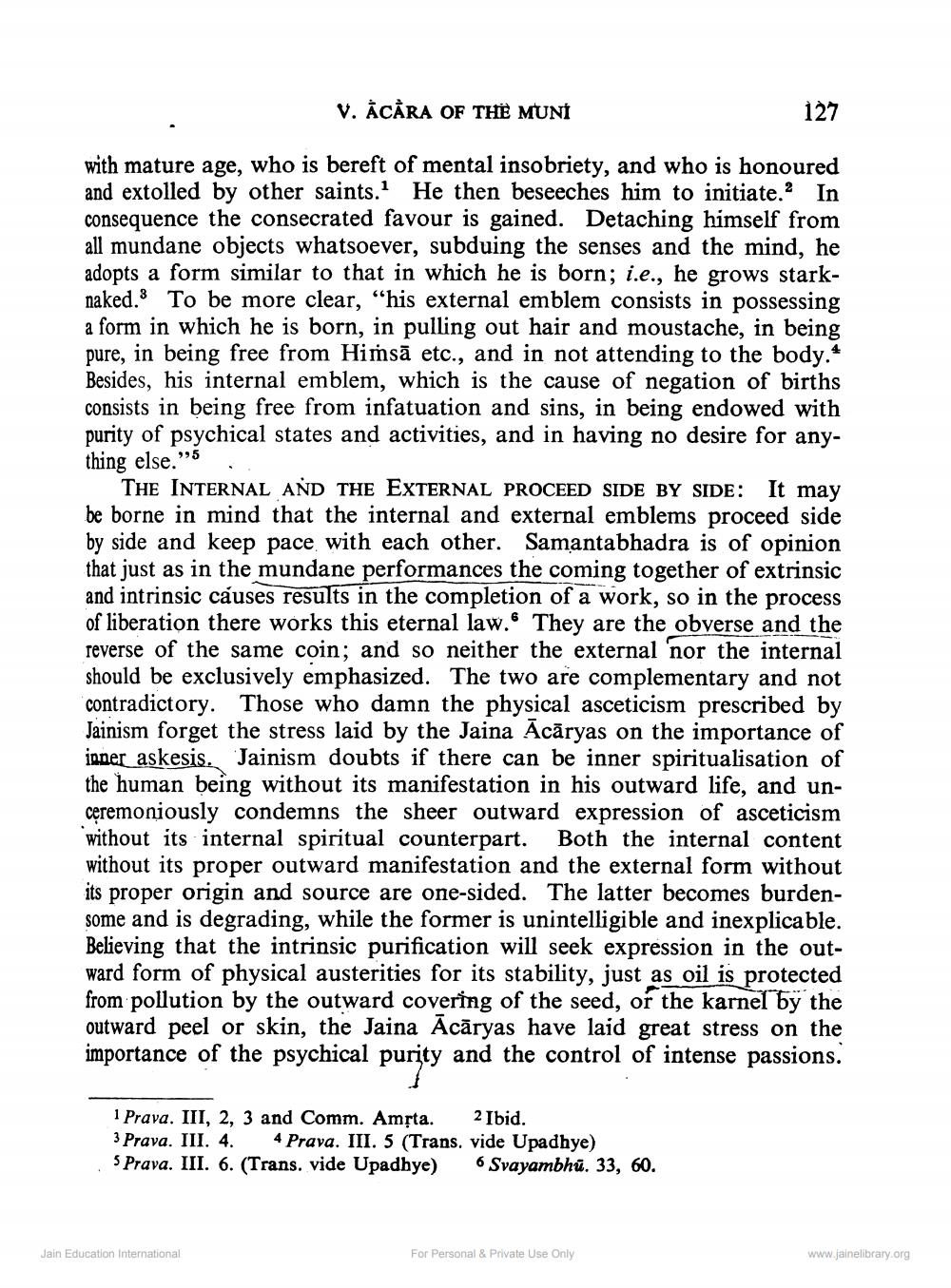________________
V. ÁCĂRA OF THË MUNÍ
127
with mature age, who is bereft of mental insobriety, and who is honoured and extolled by other saints. He then beseeches him to initiate. In consequence the consecrated favour is gained. Detaching himself from all mundane objects whatsoever, subduing the senses and the mind, he adopts a form similar to that in which he is born; i.e., he grows starknaked. To be more clear, “his external emblem consists in possessing a form in which he is born, in pulling out hair and moustache, in being pure, in being free from Himsā etc., and in not attending to the body. 4 Besides, his internal emblem, which is the cause of negation of births consists in being free from infatuation and sins, in being endowed with purity of psychical states and activities, and in having no desire for anything else."S
THE INTERNAL AND THE EXTERNAL PROCEED SIDE BY SIDE: It may be borne in mind that the internal and external emblems proceed side by side and keep pace with each other. Samantabhadra is of opinion that just as in the mundane performances the coming together of extrinsic and intrinsic causes results in the completion of a work, so in the process of liberation there works this eternal law. They are the obverse and the reverse of the same coin; and so neither the external 'nor the internal should be exclusively emphasized. The two are complementary and not contradictory. Those who damn the physical asceticism prescribed by Jainism forget the stress laid by the Jaina Acāryas on the importance of inner askesis. Jainism doubts if there can be inner spiritualisation of the human being without its manifestation in his outward life, and unceremoniously condemns the sheer outward expression of asceticism without its internal spiritual counterpart. Both the internal content without its proper outward manifestation and the external form without its proper origin and source are one-sided. The latter becomes burdensome and is degrading, while the former is unintelligible and inexplicable Believing that the intrinsic purification will seek expression in the outward form of physical austerities for its stability, just as oil is protected from pollution by the outward covering of the seed, or the karnel by the outward peel or skin, the Jaina Ācāryas have laid great stress on the importance of the psychical purity and the control of intense passions.
1 Prava. III, 2, 3 and Comm. Amrta. 2 Ibid. 3 Prava. III. 4. 4 Prava. III. 5 (Trans. vide Upadhye) 5 Prava. III. 6. (Trans. vide Upadhye) Svayambhū. 33, 60.
Jain Education International
For Personal & Private Use Only
www.jainelibrary.org




